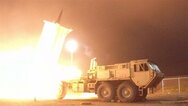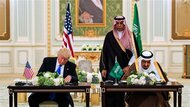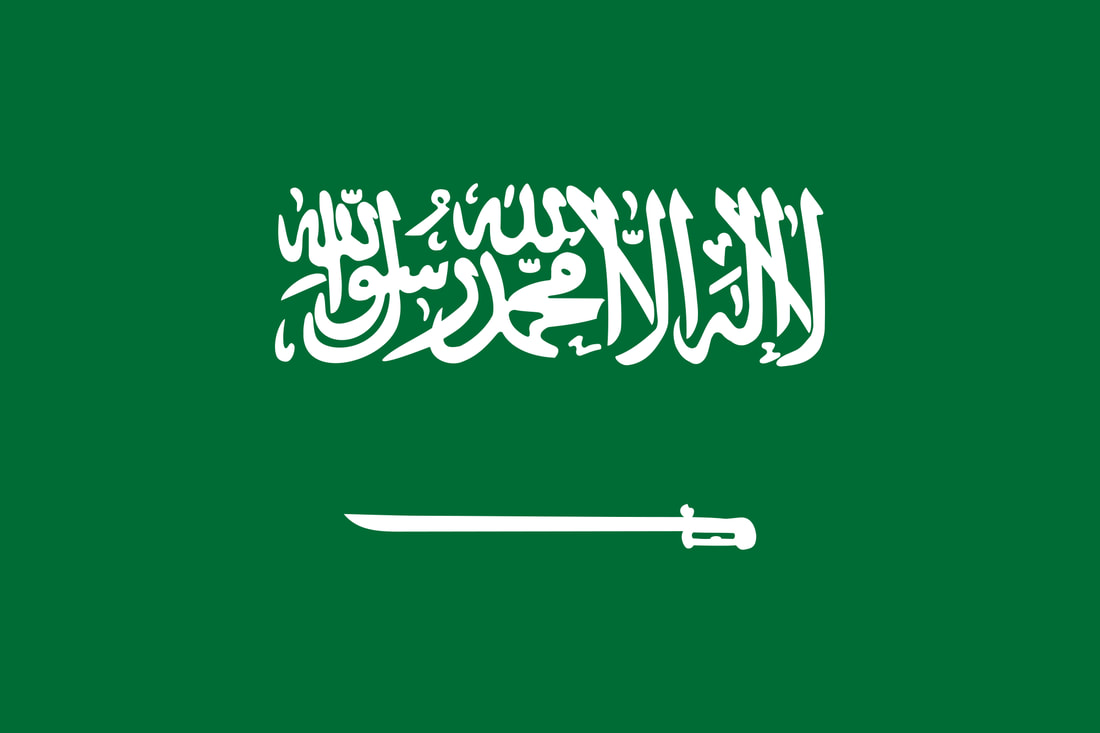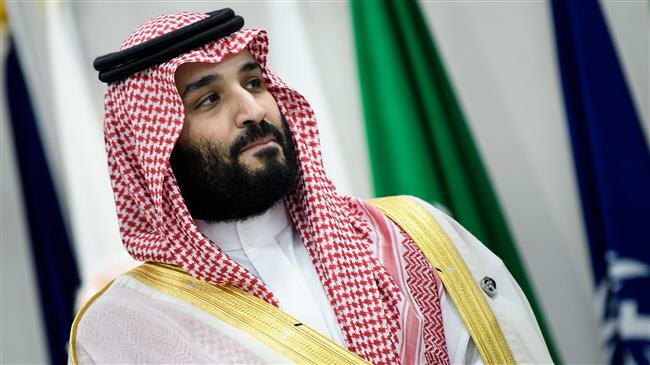6 oct 2017

The government of US President Donald Trump has approved a $15 billion sale of Terminal High Altitude Area Defense (THAAD) missile systems to Saudi Arabia, a move that the State Department says is aimed at addressing the kingdom's regional concerns.
"This sale furthers US national security and foreign policy interests, and supports the long-term security of Saudi Arabia and the [Persian] Gulf region in the face of Iranian and other regional threats," the department said in a statement on Friday.
The US had already supplied the advanced missile system to Qatar and the United Arab Emirates, both Saudi Arabia's neighbors.
The system has also been deployed to South Korea to allegedly address US regional allies' concerns about a possible strike by North Korea, amid ongoing tensions over Pyongyang's ballistic missile tests and nuclear weapons program.
It is now up to the US Congress to approve the deal within 30 days. The State Department said it would advise lawmakers that, in Saudi hands, the system would "stabilize" the situation in the region and help defend US forces and their allies there.
"The proposed sale of this equipment and support will not alter the basic military balance in the region," it said, probably referring to Israel's concerns about the Trump administration's extensive arms deals with the Riyadh regime.
During his trip to Riyadh in May, Trump proudly agreed to provide the Saudi military with $110 billion in arms effective immediately, plus at least another $350 billion over the next 10 years.
The agreement did not go down well with Israeli leaders, who voiced concern about Tel Aviv's ability to retain its "qualitative military edge" in the Middle East.
Israel Energy Minister Yuval Steinitz said the US had not given any "explanations" to Israel before inking the arms deal.
Besides THAAD, the package also included Patriot missiles, tanks, artillery, armored personnel carriers, warships, helicopters, patrol boats and their associated weapons systems.
In a separate statement on Friday, the Pentagon’s Defense Security Cooperation Agency (DSCA) said the deal “will support the foreign policy and national security objectives of the United States by improving the security of a friendly country.”
"THAAD's exo-atmospheric, hit-to-kill capability will add an upper-tier to Saudi Arabia's layered missile defense architecture," unnamed officials told the AFP.
According to DSCA, Saudis had put in orders for 44 THAAD launchers, 360 Interceptor missiles, 16 Fire Control and Communications Mobile Tactical Station Groups and seven AN/TPY-2 cutting-edge THAAD radars.
Lockheed Martin and Raytheon are the two main US contractors who will profit from the sale.
"This sale furthers US national security and foreign policy interests, and supports the long-term security of Saudi Arabia and the [Persian] Gulf region in the face of Iranian and other regional threats," the department said in a statement on Friday.
The US had already supplied the advanced missile system to Qatar and the United Arab Emirates, both Saudi Arabia's neighbors.
The system has also been deployed to South Korea to allegedly address US regional allies' concerns about a possible strike by North Korea, amid ongoing tensions over Pyongyang's ballistic missile tests and nuclear weapons program.
It is now up to the US Congress to approve the deal within 30 days. The State Department said it would advise lawmakers that, in Saudi hands, the system would "stabilize" the situation in the region and help defend US forces and their allies there.
"The proposed sale of this equipment and support will not alter the basic military balance in the region," it said, probably referring to Israel's concerns about the Trump administration's extensive arms deals with the Riyadh regime.
During his trip to Riyadh in May, Trump proudly agreed to provide the Saudi military with $110 billion in arms effective immediately, plus at least another $350 billion over the next 10 years.
The agreement did not go down well with Israeli leaders, who voiced concern about Tel Aviv's ability to retain its "qualitative military edge" in the Middle East.
Israel Energy Minister Yuval Steinitz said the US had not given any "explanations" to Israel before inking the arms deal.
Besides THAAD, the package also included Patriot missiles, tanks, artillery, armored personnel carriers, warships, helicopters, patrol boats and their associated weapons systems.
In a separate statement on Friday, the Pentagon’s Defense Security Cooperation Agency (DSCA) said the deal “will support the foreign policy and national security objectives of the United States by improving the security of a friendly country.”
"THAAD's exo-atmospheric, hit-to-kill capability will add an upper-tier to Saudi Arabia's layered missile defense architecture," unnamed officials told the AFP.
According to DSCA, Saudis had put in orders for 44 THAAD launchers, 360 Interceptor missiles, 16 Fire Control and Communications Mobile Tactical Station Groups and seven AN/TPY-2 cutting-edge THAAD radars.
Lockheed Martin and Raytheon are the two main US contractors who will profit from the sale.
22 may 2017

Israel has voiced concern about the ability to retain its "qualitative military edge" in the Middle East following the $110 billion arms package signed between the US and Saudi Arabia over the weekend.
“Saudi Arabia is a hostile country and we must ensure that Israel’s qualitative military edge is preserved,” Energy Minister Yuval Steinitz was quoted as saying by the Israeli media on Monday.
Under the deal, Riyadh will receive $110 billion in arms effective immediately, plus at least another $350 billion over the next 10 years, which Steinitz called "a matter that really should trouble us."
The minister indicated that the US had not consulted with Israel before inking the massive arms deal.
“Hundreds of millions of dollars in weapons deals is something we should receive explanations about,” he said.
White House spokesman Sean Spicer said on Twitter that the agreement was the “largest single arms deal in US history.”
A senior White House official, however, said the arms deal would not erode Israel’s qualitative military edge in the Middle East.
The State Department said the wide-ranging deal would cover five specific areas, including "offers of extensive training and support to strengthen our partnership and the Saudi armed forces.”
The package includes tanks, artillery, armored personnel carriers, and helicopters as well as warships, helicopters, patrol boats, and associated weapons systems.
It would also include Patriot missiles and the Terminal High Altitude Area Defense (THAAD) anti-missile system, which was recently deployed by the US in South Korea.
Israeli Intelligence Minister Yisrael Katz said the US-Saudi arms deals should be in line with "a regional coalition under American leadership to block and push back Iran.”
“At the same time Israel’s qualitative military edge should be maintained,” he said.
However, Minister Ayoob Kara, Israel's point-man for engagement with the Arab world, warned that Riyadh might become a “world power with military superiority over” Israel.
A top US official and a member of Trump’s entourage said Washington understood what he described as Israel's "completely legitimate" concerns and vowed to help Tel Aviv maintain its military advantage.
"We’re taking a whole bunch of measures, some apparent some not so apparent, to ensure Israel’s qualitative military edge. That will in no way be compromised," the official said.
The concerns were voiced as Trump planned to visit Israel on Monday. "You’ll hear a really strong statement from the president on his commitment to Israel and to Israel’s defense," the US official said.
In September, Israel and the US signed a “historic” arms deal under which Tel Aviv will receive $38 billion in military aid over a decade.
Part of the fund is earmarked for purchasing 50 of the world’s most advanced fighter plane, the F-35, which has been touted as giving Israel complete air superiority in the region for the next 40 years.
A February report by Stockholm International Peace Research Institute said arms imports jumped by 86% between 2012 and 2016 in the Middle East, mostly bought by Saudi Arabia, the UAE and Qatar.
The Middle East accounted for 29% of global arms purchases, an increase of almost double from the previous five-year period, it said.
“Saudi Arabia is a hostile country and we must ensure that Israel’s qualitative military edge is preserved,” Energy Minister Yuval Steinitz was quoted as saying by the Israeli media on Monday.
Under the deal, Riyadh will receive $110 billion in arms effective immediately, plus at least another $350 billion over the next 10 years, which Steinitz called "a matter that really should trouble us."
The minister indicated that the US had not consulted with Israel before inking the massive arms deal.
“Hundreds of millions of dollars in weapons deals is something we should receive explanations about,” he said.
White House spokesman Sean Spicer said on Twitter that the agreement was the “largest single arms deal in US history.”
A senior White House official, however, said the arms deal would not erode Israel’s qualitative military edge in the Middle East.
The State Department said the wide-ranging deal would cover five specific areas, including "offers of extensive training and support to strengthen our partnership and the Saudi armed forces.”
The package includes tanks, artillery, armored personnel carriers, and helicopters as well as warships, helicopters, patrol boats, and associated weapons systems.
It would also include Patriot missiles and the Terminal High Altitude Area Defense (THAAD) anti-missile system, which was recently deployed by the US in South Korea.
Israeli Intelligence Minister Yisrael Katz said the US-Saudi arms deals should be in line with "a regional coalition under American leadership to block and push back Iran.”
“At the same time Israel’s qualitative military edge should be maintained,” he said.
However, Minister Ayoob Kara, Israel's point-man for engagement with the Arab world, warned that Riyadh might become a “world power with military superiority over” Israel.
A top US official and a member of Trump’s entourage said Washington understood what he described as Israel's "completely legitimate" concerns and vowed to help Tel Aviv maintain its military advantage.
"We’re taking a whole bunch of measures, some apparent some not so apparent, to ensure Israel’s qualitative military edge. That will in no way be compromised," the official said.
The concerns were voiced as Trump planned to visit Israel on Monday. "You’ll hear a really strong statement from the president on his commitment to Israel and to Israel’s defense," the US official said.
In September, Israel and the US signed a “historic” arms deal under which Tel Aviv will receive $38 billion in military aid over a decade.
Part of the fund is earmarked for purchasing 50 of the world’s most advanced fighter plane, the F-35, which has been touted as giving Israel complete air superiority in the region for the next 40 years.
A February report by Stockholm International Peace Research Institute said arms imports jumped by 86% between 2012 and 2016 in the Middle East, mostly bought by Saudi Arabia, the UAE and Qatar.
The Middle East accounted for 29% of global arms purchases, an increase of almost double from the previous five-year period, it said.


